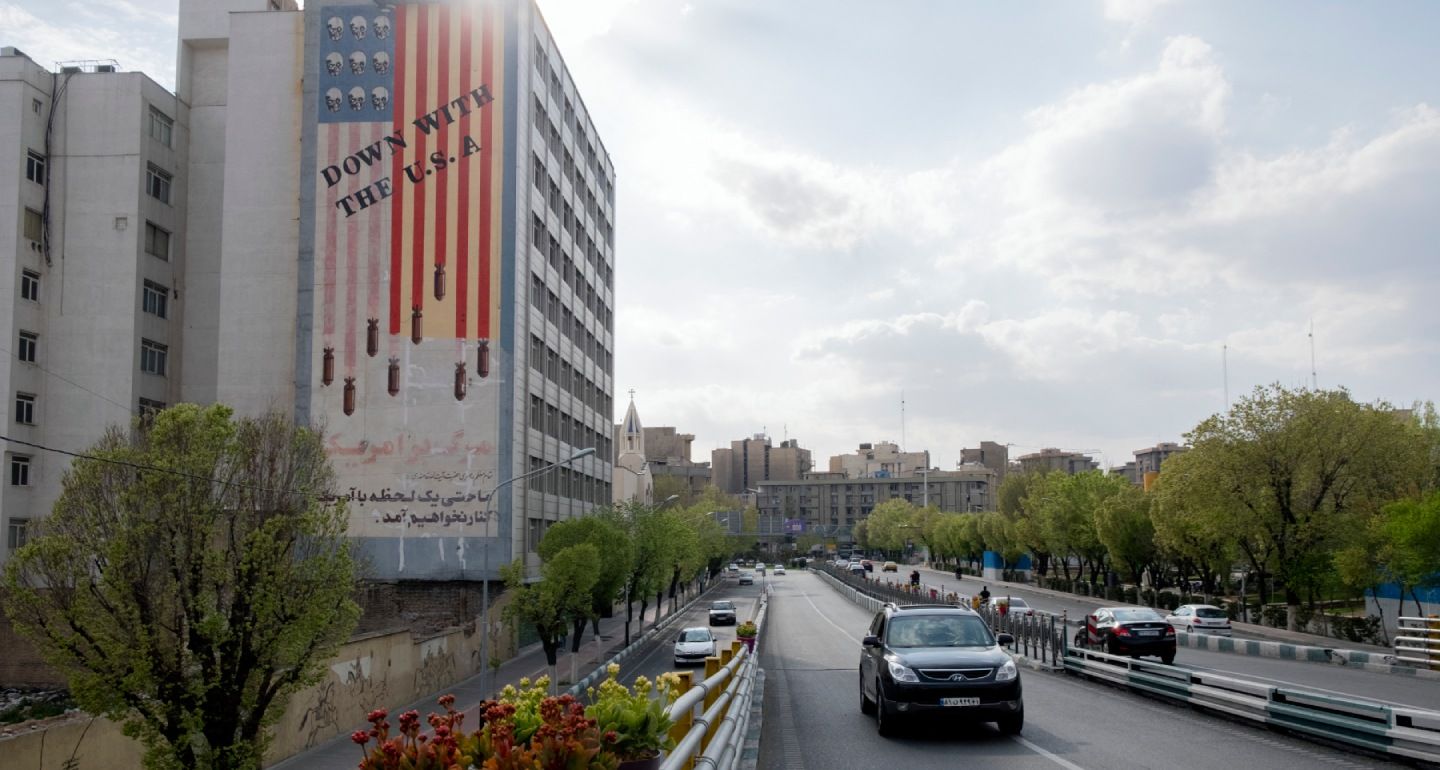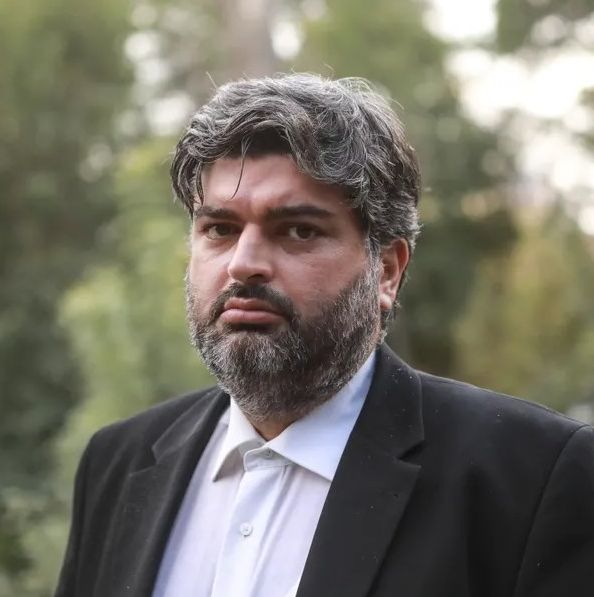Instead of a guaranteed ally, the Kremlin now perceives Armenia as yet another hybrid battlefield where it is fighting the West.
Mikayel Zolyan
{
"authors": [
"Nikita Smagin"
],
"type": "commentary",
"blog": "Carnegie Politika",
"centerAffiliationAll": "",
"centers": [
"Carnegie Endowment for International Peace",
"Carnegie Russia Eurasia Center"
],
"englishNewsletterAll": "",
"nonEnglishNewsletterAll": "",
"primaryCenter": "Carnegie Russia Eurasia Center",
"programAffiliation": "",
"programs": [],
"projects": [],
"regions": [
"Russia",
"Iran",
"United States"
],
"topics": [
"Foreign Policy",
"Security",
"Global Governance"
]
}
Source: AFP via Getty Images
Fears are growing in Tehran that the Kremlin might throw it under the bus as Russian President Vladimir Putin pursues closer ties with the United States.
The rapprochement between Moscow and Washington that began after Donald Trump’s inauguration as president of the United States has sparked hopes not only of an end to the war in Ukraine, but also that it could shape the outcome of long-running diplomatic issues. Iran has been watching developments with particular unease, worrying that it could become a bargaining chip in the diplomatic back-and-forth between Moscow and Washington.
The recent telephone conversation between Trump and his Russian counterpart Vladimir Putin only added to Tehran’s misgivings. Most concerning for Tehran was the White House’s statement that Putin and Trump “shared the view that Iran should never be in a position to destroy Israel.” Given that an Israeli attack on Iran’s nuclear program seems closer than ever, this could be read as Moscow’s willingness to sacrifice Tehran for the greater goal of restoring ties with Washington. But is there any truth to this?
There’s nothing new in suspicions between Russia and Iran: indeed, wariness of Moscow’s intentions has long been widespread among both the Iranian elite and broader society. The reasons are myriad: they include the military interventions by the Russian Empire and Soviet Union in Iran and, more recently, Moscow’s refusal to vote against United Nations resolutions on Iran’s nuclear program. So there’s nothing particularly surprising about Iranian fears that Moscow will try to sell them out.
However, the situation is very different today to how it was just a few years ago. After the West’s efforts to isolate Russia following the full-scale invasion of Ukraine in 2022, relations with Iran became a priority for the Kremlin. Iran is now an important military partner and crucial to some of Moscow’s major international projects, such as the North–South Transport Corridor.
In addition, warming ties with Iran fit well with the Kremlin’s decades-old strategy of turning its back on the West (a trend the war in Ukraine has only accelerated). Nor are there any guarantees that a better relationship with the West is actually achievable for the Kremlin, especially given that Russia is still the target of so many Western sanctions. The experience of Iran itself shows that sanctions are easy to impose, but extremely difficult to lift. And even if the Kremlin manages to cut a deal with Trump, Russia is still sanctioned by other jurisdictions, including the European Union, Japan, and Canada. In other words, sanctions relief will be a long and complex process.
Nor is the Kremlin likely to suddenly start believing that Russia’s future lies in the West. Of course, Russian officials might try to get sanctions lifted or tempt Western companies back to the Russian market. But—whatever the outcome of the negotiations over Ukraine—the much-discussed “pivot to the East” will remain the cornerstone of Russian foreign policy.
As long as closer ties with non-Western countries are an important goal for Russia, it will be difficult for Moscow to sacrifice Iran: it’s too important economically, logistically, and as a testing ground for new forms of international cooperation. For these reasons, the Trump-Putin negotiations do not pose a threat to the long-term relationship between Moscow and Tehran.
In the short term, however, there could be bumps in the road. The situation in the Middle East at the moment is such that Iran’s position could change dramatically. The chances of Israel striking Iran’s nuclear program are increasing day by day. And Trump’s recent letter to Iran’s supreme leader hinted at the same outcome: in the missive, the United States gave Tehran two months to sign a new agreement on its nuclear program or face serious consequences.
If there are Israeli and/or U.S. strikes against Iran, it’s not difficult to predict Russia’s reaction. Moscow would condemn such an attack out of genuine concern that it could lead to regime change or a civil war, which would jeopardize all of Russia’s investments in Iran in recent years. At the same time, Moscow does not want to see Iran acquire a nuclear weapon.
An ideal outcome for Moscow would be if it were involved in a nuclear agreement between Tehran and Washington—perhaps given the role of ensuring the implementation of such a deal. For this reason, the Kremlin has agreed to be a mediator in talks between the United States and Iran. The only problem is that these talks have not yet started because Iran has consistently refused to engage with Trump under threat of force. If this continues, there will be no need for Russian mediation, and a military scenario will become the most likely.
There’s no way Russia will try to protect Iran from an attack: the risk of a direct confrontation with the United States and Israel would be too great. Even the mooted sale of Russian military equipment to Iran would have little effect on the course of such a confrontation. A few air defense units and fighter jets cannot save Tehran from the combined might of the United States and Israel. To even have a chance at properly protecting Iran, Russia would have to have spent many years supplying Iran with weapons.
All of this means that Russia will likely seek to reassure the United States that it will not get involved if Washington enters a military standoff with Iran. As Russia can’t seriously hope to influence the outcome, it makes more sense to package its neutrality as a concession to Washington that might help the two sides reach a more wide-ranging agreement over the Ukraine war. A major crisis in the Middle East will not be resolved in Moscow; it will be resolved by the United States-Iran-Israel triangle. Russia is destined to remain on the sidelines.
Carnegie does not take institutional positions on public policy issues; the views represented herein are those of the author(s) and do not necessarily reflect the views of Carnegie, its staff, or its trustees.
Instead of a guaranteed ally, the Kremlin now perceives Armenia as yet another hybrid battlefield where it is fighting the West.

Mikayel Zolyan
China has found a unique niche for itself within the global security ecosystem, eschewing military alliances to instead bolster countries’ internal stability using law enforcement. Authoritarian regimes from the Central African Republic to Uzbekistan are signing up.

Temur Umarov
What should happen when sanctions designed to weaken the Belarusian regime end up enriching and strengthening the Kremlin?

Denis Kishinevsky
The supposed threats from China and Russia pose far less of a danger to both Greenland and the Arctic than the prospect of an unscrupulous takeover of the island.

Andrei Dagaev
Western negotiators often believe territory is just a bargaining chip when it comes to peace in Ukraine, but Putin is obsessed with empire-building.

Andrey Pertsev